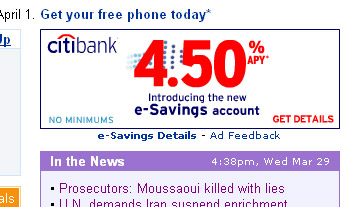Good debt versus Bad debt
Ok, I am very confused, when has it become good to be in debt? I must be missing something? Many financial gurus talk about bad debt; Credit Cards, and good debt Mortgage and school loans.
The theory is a mortgage is a good debt because you are borrowing money to purchase an “asset” that in theory will appreciate over time. Same with a school loan you are investing in yourself and in time your value will rise.
But the fact of the matter is there is no such thing as a good debt. I like to call it the necessary debt. Being in debt is not a good idea by definition (the state of owing something (especially money); “he is badly in debt”.
Most people can’t buy homes, cars and fund education with cash on hand. I understand that better than anyone. But simply because we need these things does not mean its good debt. And I would encourage everyone to pay their debts off as fast as possible, good or bad.
Crush your debt and live life debt free!



Recent Comments